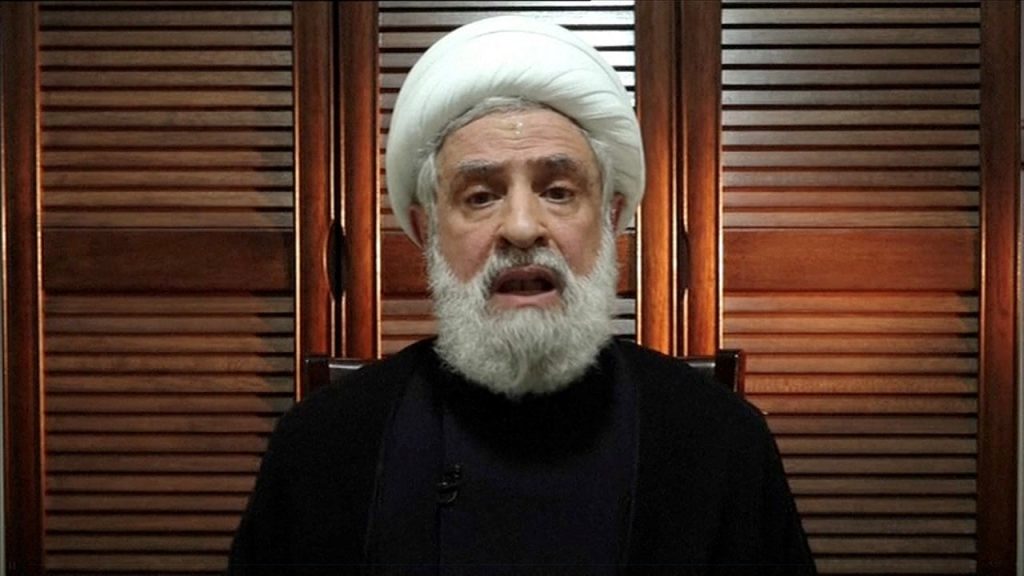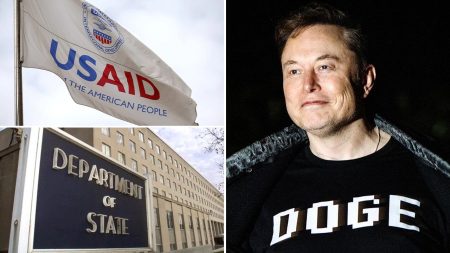Hezbollah’s Shifting Landscape: Loss of Syrian Supply Route and the Implications for Regional Stability
The fall of Bashar al-Assad in Syria has dramatically altered the regional power dynamics, significantly impacting Hezbollah’s operational capabilities and strategic outlook. Naim Qassem, Hezbollah’s leader, publicly acknowledged the loss of their crucial Syrian supply route, a critical lifeline for weapons and resources from their primary patron, Iran. This admission underscores the profound shift in the region and the challenges Hezbollah faces in maintaining its military strength in the wake of Assad’s demise. While Qassem downplayed the significance of this logistical setback, emphasizing Hezbollah’s adaptability and the potential for establishing alternative supply lines, the loss of the Syrian conduit represents a tangible blow to the group’s ability to quickly replenish its arsenal, particularly in the context of its ongoing conflict with Israel.
Hezbollah’s alliance with Assad and Iran had long been a cornerstone of the group’s regional influence. For years, Syria served as a vital transit point for Iranian weapons and materiel destined for Hezbollah in Lebanon. This support bolstered Hezbollah’s military capabilities, enabling it to project power and engage in conflicts with Israel. However, Assad’s downfall disrupted this established network, forcing Hezbollah to reassess its logistical strategies and seek alternative means of resupply. The group’s future ability to sustain its military operations and respond to potential threats remains a significant question mark.
The upheaval in Syria has created a complex and volatile security environment. Hayat Tahrir al-Sham (HTS), the group that spearheaded Assad’s overthrow, has explicitly criticized Syria’s close relationship with Iran, labeling the country an "Iranian playground." This sentiment reflects a broader shift in regional alignments, as the new power dynamics in Syria have created uncertainty about the future trajectory of the country and its relations with its neighbors. Hezbollah, previously a staunch ally of Assad, found itself forced to withdraw its forces from Syria as the dictator’s regime crumbled. This withdrawal, coupled with the loss of the Syrian supply route, has significantly weakened Hezbollah’s position in the region.
Israel has capitalized on the chaotic situation in Syria to pursue its own security objectives. The Israeli military has launched numerous airstrikes targeting Syrian army assets, including strategic and chemical weapons facilities. Moreover, Israel has taken the unprecedented step of deploying forces into the Golan Heights buffer zone, a move not seen since the 1973 Yom Kippur War. While Prime Minister Benjamin Netanyahu has stated that Israel has no interest in interfering in Syria’s internal affairs, these actions demonstrate a clear intent to exploit the current instability to weaken Hezbollah and prevent the group from rebuilding its military capabilities.
The emergence of HTS as a dominant force in Syria adds another layer of complexity to the regional equation. Although HTS, a former al-Qaeda affiliate, has sought to portray itself as a moderating influence, Israel remains skeptical of the group’s long-term intentions. The potential for HTS to become a new threat to Israel, particularly given its control over territory bordering the Golan Heights, has heightened Israeli security concerns. This uncertainty underscores the challenges posed by the evolving situation in Syria, where the rise of new actors with unclear agendas adds to the overall instability.
Hezbollah’s actions following the October 7, 2023, cross-border attacks in support of Hamas demonstrate the group’s continued commitment to its strategic objectives, despite the setbacks in Syria. While a ceasefire has largely held since late November, punctuated by occasional Israeli airstrikes against Hezbollah operatives, the underlying tensions remain. Qassem’s defense of the ceasefire, framing it as a tactical necessity rather than an abandonment of Hezbollah’s "resistance," suggests that the group is likely biding its time, adapting to the new realities on the ground while seeking to maintain its capacity to challenge Israel in the future. The long-term implications of the Syrian conflict for Hezbollah, and the broader regional stability, remain to be seen, but the loss of the Syrian supply route marks a significant turning point in the group’s trajectory.










